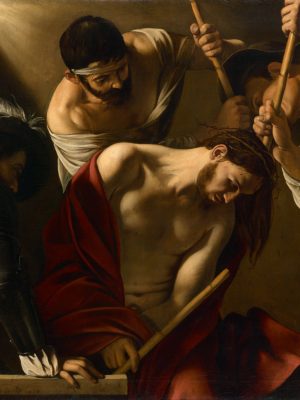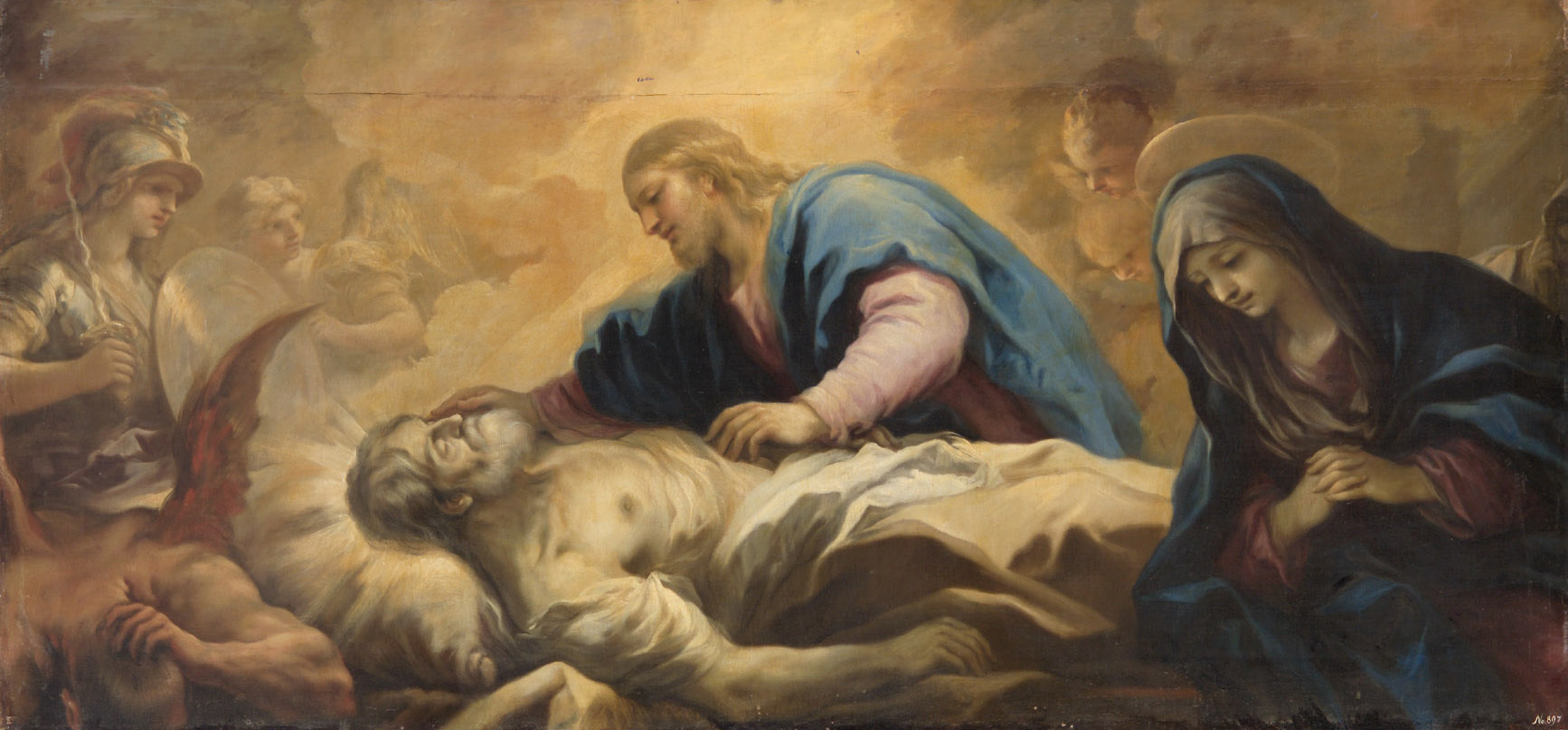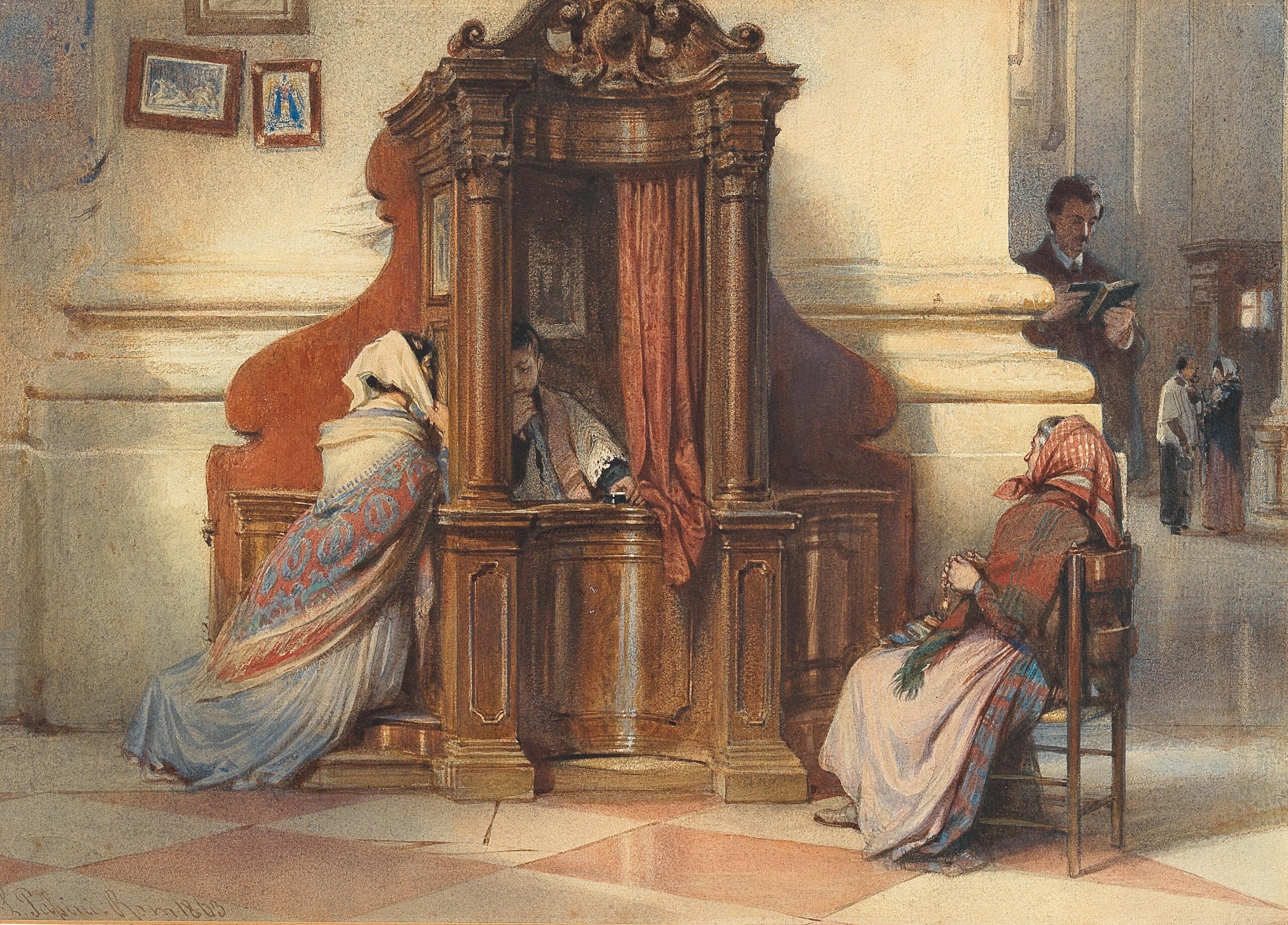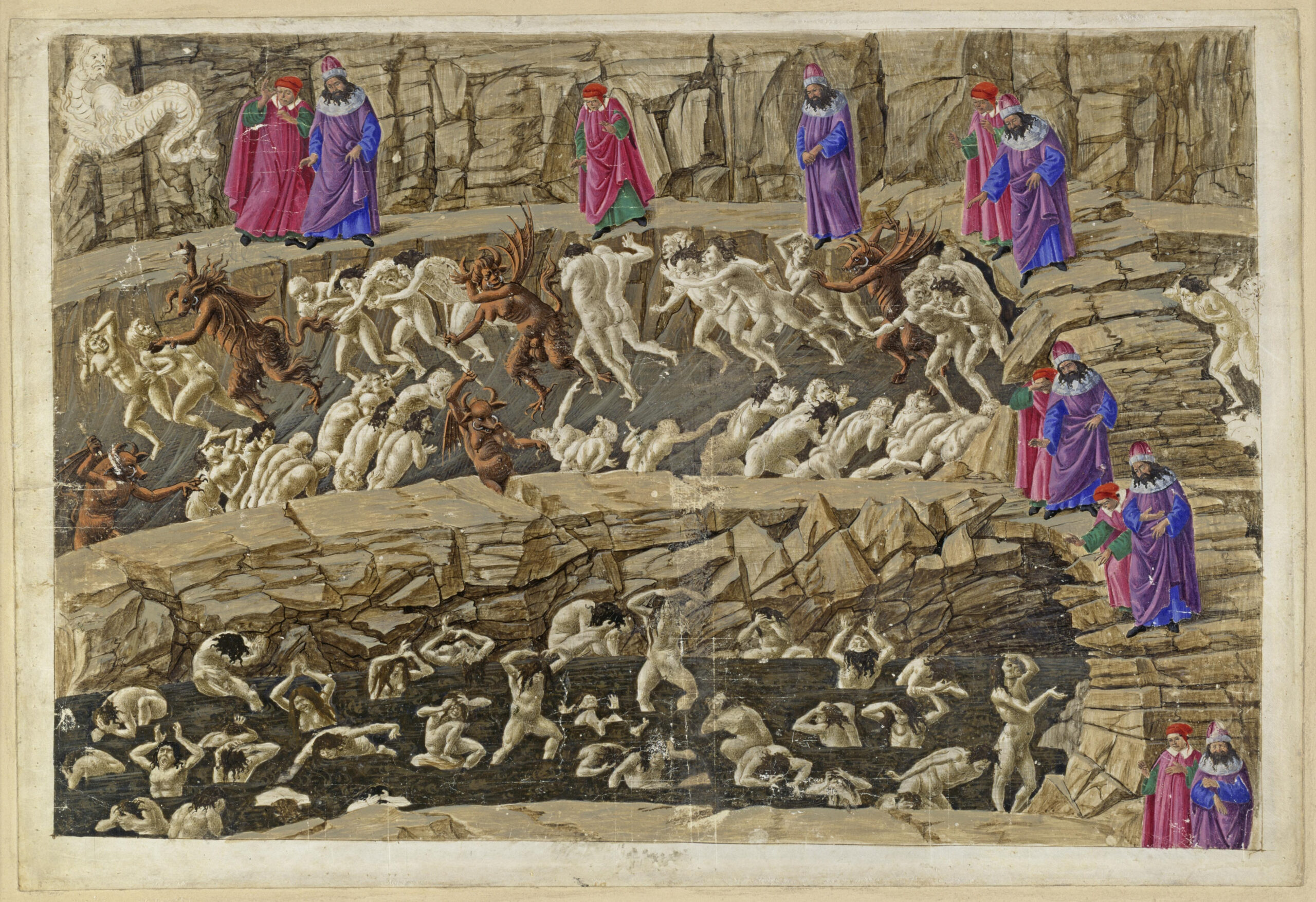When we hear the word, “mortification”, we often think of physical austerities. Yet, it is interior mortification that our souls so often need. Here Fr. John Croiset, SJ, discusses mortification as a necessary disposition, the two kinds of mortification, and the practice of mortification in all things.
A Necessary Disposition
Mortification is a necessary disposition for the true love of Jesus Christ; this was the first lesson that Jesus Christ Himself gave those who wished to be His disciples; without mortification no one can expect to be a true follower of Him. “If any man,” says He, “will come after me, let him deny himself, and take up his cross daily, and follow me.” (Lk. 9:23). And again He says: “If any man come to me, and hate not his father, and mother, and wife and children, and brethren, and sisters, yea and his own life also, he cannot be my disciple.” (Lk. 14:26). Accordingly, all the saints had this distinguishing mark of perfect mortification. When people praised the virtue of anyone in the presence of St. Ignatius, he would ask: “Is that person truly mortified?” By that he wished to intimate that true mortification is inseparable from true piety, not only because virtue cannot exist long without general and constant mortification, but also because without mortification there can be no true virtue.
Two Kinds Of Mortification
There are two kinds of mortification: the one, exterior, which consists in bodily austerities; the other, interior, which consists in repressing all inordinate affections of the mind and heart. Both kinds are necessary to attain perfection, and one cannot continue to exist long without the other. Fasting, vigils, the use of the hairshirt and other such macerations of the body are powerful means to become truly spiritual and really perfect; when used with discretion, they help wonderfully to strengthen our human nature, which is cowardly when there is question of doing good, but very eager to do evil; they are of great assistance also to repel the attacks and avoid the snares of our common enemy, and to obtain from the Father of Mercies the helps necessary for the just, especially for beginners.
Sanctity, it is true, does not consist in exterior penances, and they are not incompatible with hypocrisy; it is not so with interior mortification. It is always a certain mark of true piety, and so is more necessary than exterior mortification, and no one can reasonably be dispensed from it. This is the violence which we must do to ourselves in order to possess the kingdom of Heaven. Not everyone can fast or wear a hairshirt, but there is no one who cannot be silent when passion prompts him to reply or vanity to speak; there is no one who cannot mortify his human nature, his desires, and his passions. That is what is understood by this interior mortification by which a person weakens and conquers his self-love, and by which he gets rid of his imperfections. It is idle to flatter ourselves that we love Jesus Christ if we are not mortified; all the fine sentiments of piety and the practices of devotion are suspect without perfect mortification. We are astonished to see ourselves so imperfect and to find, after so many exercises of piety and so many Holy Communions, that all our passions are still alive and continue to excite our hearts. Can we not see that want of mortification is the source of all these revolts? We must, then, if we wish to conquer this self-love by which all the passions are nourished, resolve to exercise generous and constant mortification.
Mortification In All Things
It is not enough to mortify ourselves in some things, for some time; we must, as far as possible, mortify ourselves in everything and at all times, with prudence and discretion. A single unlawful gratification allowed to human nature will do more to make it proud and rebellious than a hundred victories gained over it. Truce with this sort of enemy is victory for him; “Brethren,” said St. Bernard, “what is cut will grow again, and what appears extinguished will light again, and what is asleep will awake again.” To preserve the interior spirit of devotion, the soul must not be dissipated with exterior distractions, and as the prophet says, must be surrounded on all sides by a hedge of thorns. Now, if we omit to do that, it will be for us the cause of tepidity, back sliding, and want of devotion. When we mortify our disordered inclinations in one thing, we generally make up for it by some other satisfaction which we allow ourselves. During the time of retreat, we are recollected, but as soon as it is over, we open the gates of the senses to all kinds of distractions.
The exercise of this interior mortification, so common in the lives of the saints, is known by all who have a real desire to be perfect. In this matter we have only to listen to the Spirit of God. The love of Jesus Christ makes people so ingenious, that the courage and energy which they display and the means of mortifying themselves with which the Holy Spirit inspires even the most uncultured people, surpass the genius of the learned, and can be regarded as little miracles. There is nothing which they do not make an occasion to contradict their natural inclinations; there is no time or place which does not appear proper to mortify themselves without ever going beyond the rules of good sense. It is enough that they have a great desire to see or to speak, to make them lower their eyes or keep silent; the desire to learn news, or to know what is going on, or what is being said, is for them a subject of continual mortification which is as meritorious as it is ordinary, and of which God alone is the Witness. The appropriate word, a witticism in conversation, can bring them honor, but they make it the matter of a sacrifice. There is hardly a time of the day but gives opportunities for mortification; whether one is sitting or standing, one can find a place or an attitude that is uncomfortable without being remarked. If they are interrupted a hundred times in a serious employment, they will reply a hundred times with as much sweetness and civility as if they had not been occupied. The ill-humor of a person with whom we have to live, the imperfections of a servant, the ingratitude of a person under obligations to us, can give much exercise for the patience of a person solidly virtuous.
Finally, the inconveniences of place, season or persons suffered in a manner to make people believe that we do not feel them are small occasions of mortification, it is true, but the mortification on these occasions is not small; it is of great merit. It may be said that great graces and even sublime sanctity usually depend on the generosity with which we mortify ourselves constantly on these little occasions. Exact fulfillment of the duties of one’s state and conformity in all things to community life without regard to one’s inclinations, employment, or age involve that continual mortification which is not subject to vanity but which is in conformity with the spirit of Jesus Christ.
ooo
This article is taken from a chapter in Devotion to the Sacred Heart of Jesus by Fr. John Croiset, SJ which is available from TAN Books.









